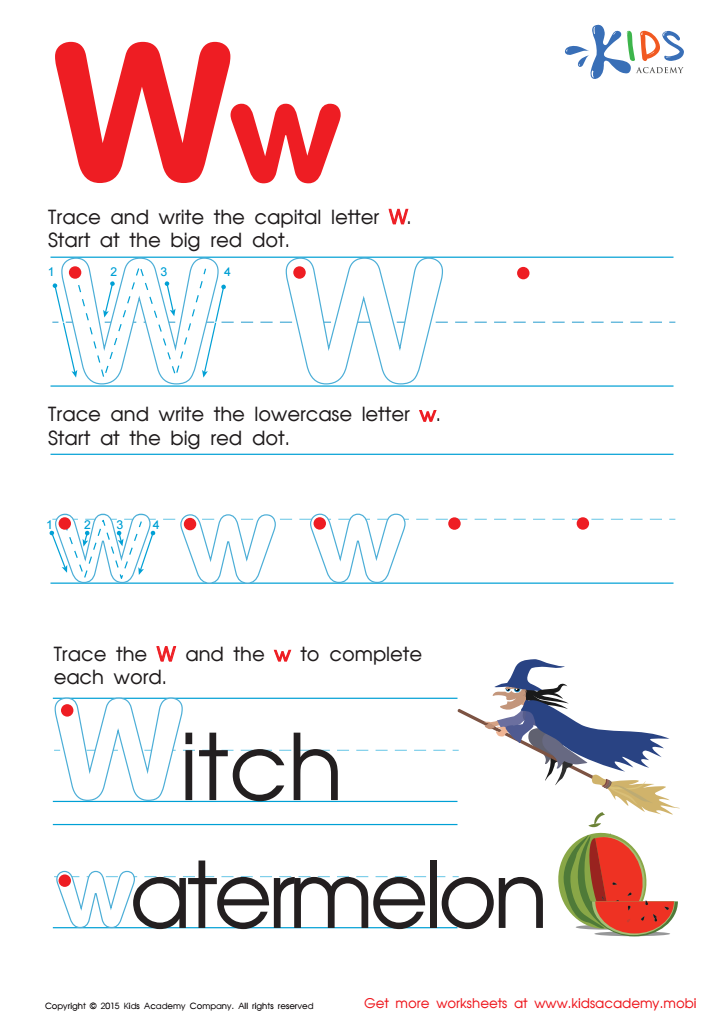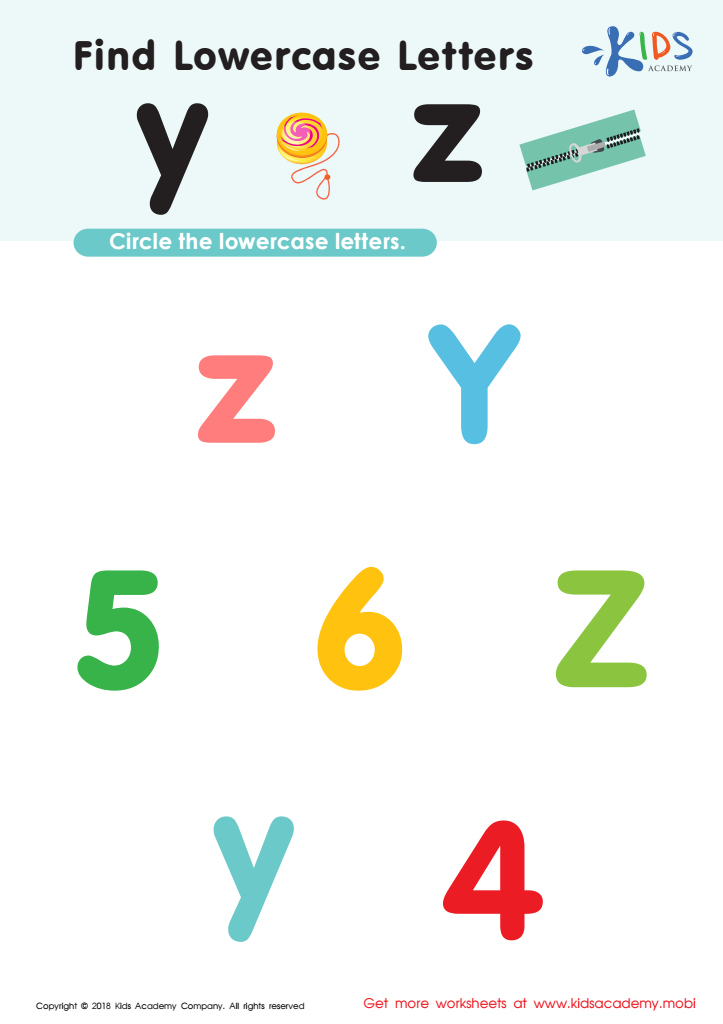Alphabetical understanding Letter Recognition Worksheets for Ages 5-6
3 filtered results
-
From - To
Enhance your child's reading skills with our Alphabetical Understanding Letter Recognition Worksheets, specifically designed for ages 5-6. These engaging worksheets help young learners identify and recognize letters through fun activities and interactive exercises. Perfect for reinforcing phonemic awareness, our resources encourage children to explore letters in various contexts, promoting a foundational understanding of the alphabet. Each worksheet is crafted to be colorful and engaging, ensuring that learning remains enjoyable. With a variety of exercises, including matching, tracing, and cute illustrations, your child will develop confidence in their letter recognition abilities. Start your child’s literacy journey today with our printable worksheets!


Letter E Coloring Sheet


Letter W Tracing Page


Find Lowercase Letters y z Worksheet
Alphabetical understanding and letter recognition are fundamental skills for children aged 5-6, forming the basis for effective reading and writing. At this critical developmental stage, children are beginning to make connections between letters and their corresponding sounds, a process known as phonemic awareness. Mastery in recognizing letters enables children to decode words, an essential skill for literacy, which directly impacts academic success.
When parents and teachers prioritize letter recognition, they not only foster literacy skills but also boost children's confidence and motivation to learn. Young learners who can easily identify letters tend to feel more capable in classroom activities and reading exercises. Furthermore, understanding the alphabet aids in enhancing vocabulary development as emerging readers encounter new words, promoting better comprehension skills.
Additionally, letter recognition supports cognitive development by reinforcing memory and categorization skills. Activities based around letters—such as interactive games, songs, and stories—make learning engaging and enjoyable. For these reasons, investing time and resources in a child’s alphabetical understanding sets a strong educational foundation, ultimately leading to lifelong literacy skills and capabilities that extend well beyond the early years. Parents and teachers play a vital role in nurturing this essential understanding during the formative years.
 Assign to My Students
Assign to My Students














